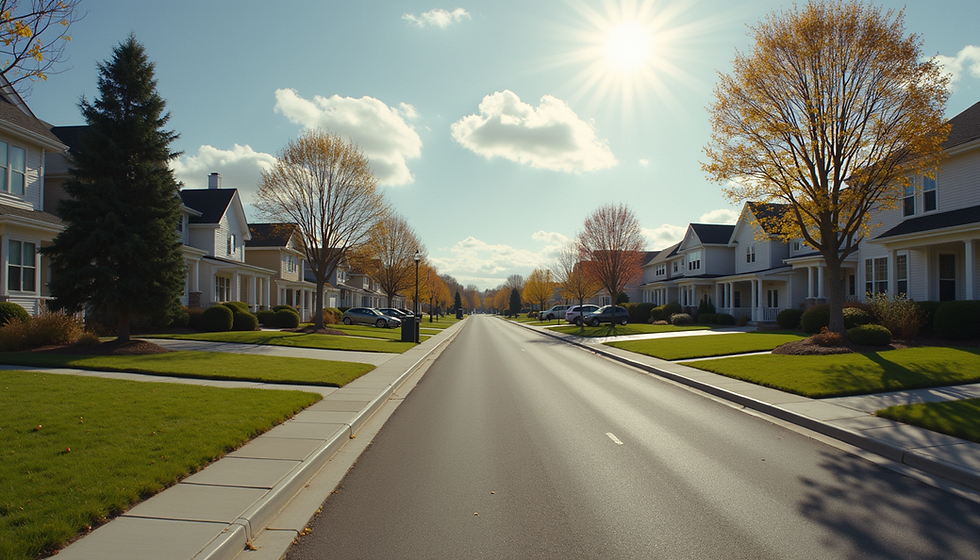Factors That Influence Home Prices in Your Area
- Brandon Scribner

- Jul 13, 2025
- 3 min read
Setting the right price for a home is critical for both sellers and buyers. Many factors play a role in determining home prices in a specific area. Understanding these factors can empower homeowners to make informed decisions, whether they are selling their property or looking to buy a new one. This blog post delves into the multifaceted nature of home pricing.
Home Pricing Trends in Your Area
Home pricing is heavily influenced by local market trends. A neighborhood’s desirability often dictates its real estate values. For example, if an area is experiencing a surge in employment opportunities, families may flock there, leading to heightened demand for housing and consequently soaring prices.
In addition, seasonal trends after holidays can also impact home pricing. Homes tend to sell faster and at higher prices during spring and summer months when families prefer to move. Conversely, winter often sees a dip in activity, leading to lower prices.

Economic Factors Affecting Home Pricing
The broader economy can significantly impact local home prices. Economic performance indicators, such as employment rates, average income levels, and economic growth, shape home pricing dynamics.
For example, a flourishing job market increases buyers' purchasing power, resulting in higher housing demand. Conversely, if a local economy is struggling with high unemployment, home prices may decline. In many cases, economic indicators are directly linked to interest rates set by financial institutions. When rates are low, borrowing becomes more affordable, which typically boosts demand and increases home prices.

Property Characteristics and Home Pricing
The specific characteristics of a property also influence its market value. Home buyers consider various factors such as the number of bedrooms and bathrooms, square footage, lot size, and property age when evaluating a property. For instance, a home with a spacious backyard in a family-oriented neighborhood may command a premium.
Beyond structural aspects, aesthetic features also play a role in home pricing. Homes with contemporary finishes, energy-efficient appliances, and well-kept landscaping typically see higher selling prices compared to similar homes requiring renovations or updates.
Investing in home improvements can significantly enhance a property's value. According to a report by the National Association of Realtors, minor bathroom remodels and kitchen upgrades yield high returns on investment.

Neighborhood Factors That Influence Home Pricing
While property characteristics are crucial, the neighborhood's overall appeal is just as important. Elements like local schools, amenities, crime rates, and community features can affect a home’s value.
For instance, homes located near top-rated schools or recreational parks tend to attract families, driving up demand. Additionally, neighborhoods that offer easy access to shopping centers and public transportation often command higher prices.
Safety is another vital consideration for home buyers. Areas with lower crime rates generally see increased property values, while neighborhoods with higher crime can suffer from depreciated home values.
The Role of Supply and Demand in Home Pricing
The basic economic principle of supply and demand plays a key role in home pricing. In a seller’s market, where demand surpasses supply, home prices tend to rise sharply. Conversely, if the supply of homes exceeds buyer demand, prices may stagnate or decline.
Real estate agents often provide invaluable insights into local market dynamics. Active engagement with a professional can help buyers and sellers navigate these fluctuations. They can offer a comprehensive home price guide and help determine an appropriate pricing strategy based on the current market climate.
Final Thoughts on Home Pricing Influences
Understanding the various factors influencing home pricing is fundamental for anyone involved in real estate. Whether buying or selling, awareness of local market trends, economic indicators, property characteristics, neighborhood appeal, and supply-demand dynamics allows for more informed decision-making.
By weighing these aspects, homeowners and potential buyers can navigate the real estate landscape with confidence. If you are looking to sell or buy a property, consider consulting an expert who can provide tailored insights and a robust home price guide to help you in your journey.



